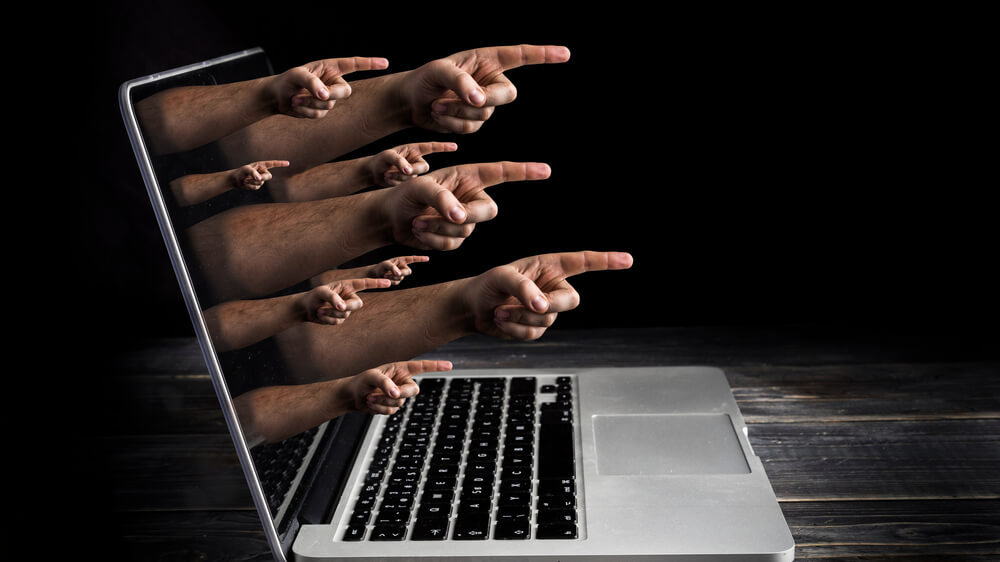Sharing Disability Experiences Online Can Be Risky. It’s Time for That to End.
Content notes: bullying, harassment, threats of violence and harm
For disabled people, sharing our experiences online can be a daunting prospect, but a vital one to make our experiences known. Many of us use social media to call out daily discrimination in their lives, instances of ableism that they want to highlight or most upsettingly, public assault due to disability.
As most non-disabled people haven’t experienced these things or don’t notice them happening on a regular basis, their first instinct can be to challenge the person who posted. Disabled people are frequently accused of exaggerating events or even outright lying. What should be met with sympathy and understanding is unfortunately often met with disbelief, which can lead to further abuse online.
Instead of asking “are you ok” or acting in solidarity, able-bodied people who reply make out that it was the disabled person in the wrong. If we share that someone has grabbed or touched us inappropriately, we’re told “they were just trying to help! You should be grateful,” as if disabled people are helpless and indebted to abled people. If we post about ableist comments, we’re told it’s not that big a deal and we’re being too sensitive. When we share that we’ve been harassed in the street, we’re asked what we did to cause the outburst, not believing that just our existence is enough to anger others.
Dr. Amy Kavanagh is a visually impaired activist and historian who uses the hashtag #JustAskDontGrab to document her mistreatment whilst using her cane and often receives pushback on Twitter. “Social media is a space for support but also raising awareness,” she says. “So, when non-disabled people express disbelief it can be very difficult, having someone doubt the truth of my experiences or even just denying my emotions or reactions are legitimate, it’s like adding to the trauma of the unwanted touching.“
Often, non-disabled people will try to undermine Dr. Kavanagh’s accounts. “When I explain that my physical and mental safety is more important that another person’s intentions, I’m accused of being ungrateful or not understanding the kindness of others,” she laments. “It’s as if they think I can’t understand my own needs or the autonomy I want for my body.”
Dr. Kavanagh also experiences trolling when she’s not even talking about her experiences. “One of the most common responses I get is ‘if you are blind, how are you tweeting?’”
As a result of tweeting about ableism and her lived experiences, Dr. Kavanagh has been subject to many forms of online abuse. “I’ve had death threats, people telling me to kill myself or that they would kill themselves if they were me, and threats of sexual violence.” Because of this, she has had to increase safety measures, being sure never to disclose where she lives or work and turning off direct messages from those who don’t follow her. “It’s just relentless harassment,” she says.
A couple of years ago, I tweeted about ableist slurs such as the “r-word,” “crazy,” and “lame,” politely asking people not to use them. I didn’t expect to receive hundreds of tweets calling me all those words. There were people insulting my intelligence and appearance. I had personal photos and tweets from years ago shared to illustrate how “r-word-ed” I was. I eventually deactivated my account after being told to “kill yourself and do the world a favour.” All of this was simply for pointing out ableist language and how it affects others.
I have since reactivated my account but the first thing I did was delete the tweet. I couldn’t bear to even see the tweet as I knew how much abuse was in the replies. Even now, two years later, I’m reluctant to share too much of my personal life or opinion for fear of abuse on that scale again.
What online harassment of disabled people ultimately aims to do is silence marginalized voices. Those who engage in this want to stop us from sharing our experiences, showing how intolerant non-disabled people still are toward disabled people. They should be ashamed, but instead they seek to shame us.
About Rooted In Rights
Rooted in Rights exists to amplify the perspectives of the disability community. Blog posts and storyteller videos that we publish and content we re-share on social media do not necessarily reflect the opinions or values of Rooted in Rights nor indicate an endorsement of a program or service by Rooted in Rights. We respect and aim to reflect the diversity of opinions and experiences of the disability community. Rooted in Rights seeks to highlight discussions, not direct them. Learn more about Rooted In Rights



